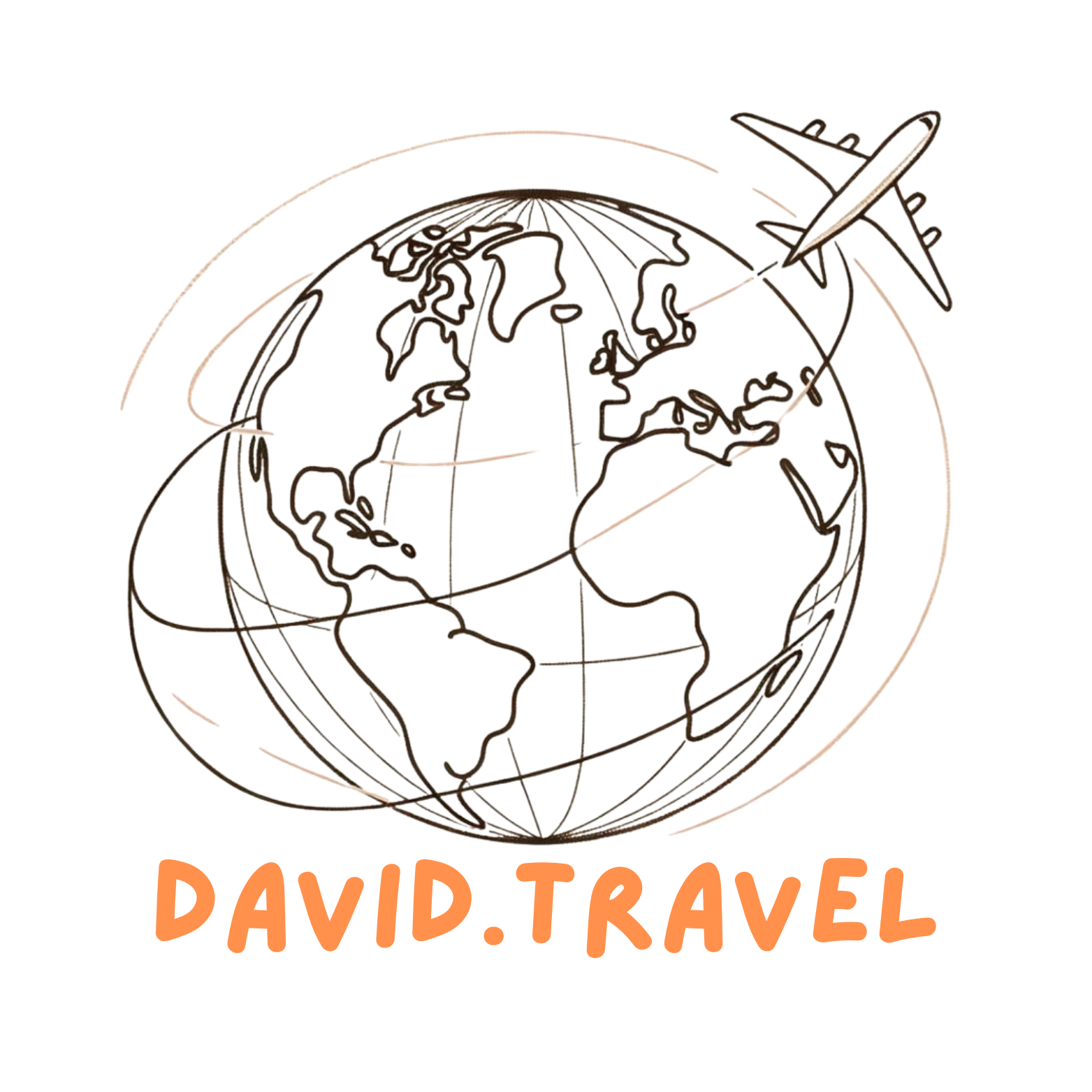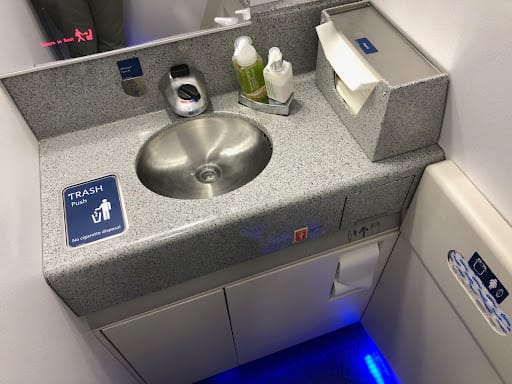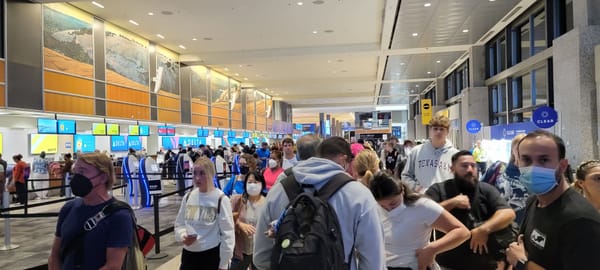Overcoming Loneliness: Building Community as a Digital Nomad

Being a digital nomad can sound exciting, but it often comes with feelings of loneliness. Many people think that being alone is part of the adventure, but that’s not always true. Building a community is essential for happiness and support while traveling. Here are some key takeaways on how to connect with others as a digital nomad.
Key Takeaways
- Loneliness can be a hidden struggle for digital nomads.
- Finding friends online can lead to real-life connections.
- Co-working spaces offer more than just a place to work; they are social hubs.
- Volunteering is a great way to meet people and give back to the community.
- Having a routine helps balance work and social life.
The Myth of the Lone Wolf Nomad
Why Solitude is Overrated
Being a digital nomad often comes with the idea that you should be a lone wolf. But let’s face it, solitude can be a bit overrated. Sure, it sounds cool to say you’re traveling alone, but who really wants to eat dinner by themselves every night?
- Loneliness can creep in faster than you think.
- You miss out on shared experiences.
- It’s hard to find someone to take your travel photos.
The Hidden Costs of Isolation
Isolation isn’t just about feeling lonely; it can also have real costs. Here’s a quick look at what you might be losing:
| Cost Type | Description |
|---|---|
| Emotional | Increased feelings of sadness |
| Financial | Missed opportunities for networking |
| Health | Stress and anxiety |
Being alone can lead to a downward spiral.
Debunking the Self-Sufficiency Myth
The idea that you can do everything on your own is a myth. Here’s why:
- Community is essential for mental health.
- You can’t always fix everything yourself.
- Collaboration often leads to better ideas.
It’s time to ditch the idea that being a nomad means being alone. Embrace the community around you!
Digital Nomad Community: More Than Just a Buzzword

The Evolution of Nomadic Networks
The idea of a digital nomad community isn’t just a trendy phrase tossed around at co-working spaces. It’s a real thing that has changed over time. Once, nomads were lone wolves, but now they’re more like a pack. The internet has made it easier to connect with others who share the same lifestyle.
From Online Forums to Real-Life Friendships
Remember when you used to chat with strangers on forums? Now, those strangers can become your friends in real life. Here’s how:
- Join online groups related to your interests.
- Attend local meetups when you arrive in a new city.
- Use social media to reach out to fellow nomads.
Why You Need More Than Wi-Fi
Sure, Wi-Fi is essential for work, but it’s not enough for a fulfilling life. You need connections, too. Here’s a quick look at why:
| Reason | Explanation |
|---|---|
| Emotional Support | Friends help you feel less lonely. |
| Shared Experiences | Adventures are better with others. |
| Networking Opportunities | Friends can lead to job opportunities. |
Building a community is not just about having fun; it’s about creating a support system that can help you thrive in your nomadic journey.
In conclusion, the digital nomad community is more than just a buzzword. It’s a lifeline that can make your travels richer and more enjoyable. So, don’t just work in isolation; get out there and connect!
The Art of Making Friends in a New City
Breaking the Ice Without Being Creepy
Making friends in a new city can feel like trying to find a needle in a haystack, especially when you’re the new kid on the block. Here are some tips to break the ice without coming off as a weirdo:
- Smile and say hello. It’s simple but effective.
- Join local classes or workshops. You’ll meet people with similar interests.
- Attend community events. Everyone loves free snacks!
Finding Your Tribe in Unfamiliar Places
Once you’ve broken the ice, it’s time to find your tribe. This can be tricky, but it’s not impossible. Here’s how:
- Use social media to connect with local groups. You can find clubs or organizations that match your interests.
- Explore co-working spaces. They’re not just for work; they’re social hubs too!
- Don’t be afraid to ask locals for recommendations. They know the best spots!
The Role of Local Events and Meetups
Local events are like gold mines for making friends. They’re everywhere, and they’re usually free or low-cost. Here’s a quick list of types of events to look for:
- Art shows: Great for meeting creative types.
- Food festivals: Who doesn’t love food?
- Sports events: Perfect for bonding over a shared team.
Making friends is like dating; it takes time, patience, and a little bit of awkwardness. Don’t rush it!
In conclusion, making friends as a digital nomad is a skill worth mastering. It’s not just about having someone to share a meal with; it’s about building a community that makes your travels richer. So, get out there and start connecting!
Co-Working Spaces: The New Social Clubs

Why Coffee Shops Aren't Enough
Let’s face it: coffee shops are great for a caffeine fix, but they’re not exactly the best places to build a community. You might get a few nods from fellow caffeine addicts, but don’t expect to make lifelong friends over a latte. Co-working spaces are where the real magic happens. They offer a blend of work and social interaction that coffee shops simply can’t match.
The Rise of Co-Working Culture
In recent years, co-working spaces have exploded in popularity. They’re not just desks and Wi-Fi; they’re vibrant hubs where digital nomads can connect. Here’s why:
- Networking Opportunities: Meet people from various fields.
- Events and Workshops: Participate in activities that spark creativity.
- Community Vibe: Feel like you belong, even if you’re miles from home.
How to Choose the Right Space for You
Not all co-working spaces are created equal. Here’s a quick guide to help you pick:
- Location: Is it near your favorite coffee shop or a park?
- Amenities: Does it have a kitchen, meeting rooms, or a chill-out area?
- Community: Are there events or groups that align with your interests?
In a world where loneliness can creep in, co-working spaces offer a lifeline. They’re not just about getting work done; they’re about building connections that can last a lifetime.
| Feature | Coffee Shops | Co-Working Spaces |
|---|---|---|
| Noise Level | High | Moderate |
| Networking Potential | Low | High |
| Amenities | Limited | Extensive |
The Dark Side of Digital Nomadism

When Freedom Becomes Loneliness
Being a digital nomad sounds like a dream, right? But let’s face it: freedom can sometimes feel like a prison. You might find yourself in a beautiful new city, but if you’re alone, it can feel pretty empty. The thrill of new places can quickly turn into a longing for familiar faces.
The Mental Health Toll
The constant moving can take a toll on your mind. Here are some common issues nomads face:
- Anxiety about finding the next place to stay.
- Depression from feeling disconnected.
- Burnout from juggling work and travel.
| Issue | Percentage of Nomads Affected |
|---|---|
| Anxiety | 45% |
| Depression | 30% |
| Burnout | 25% |
Stories of Isolation and Burnout
Many nomads have stories that sound like a bad movie plot. They travel to exotic locations but end up feeling isolated. Here’s a quick list of common experiences:
- Staying in hostels but still feeling alone.
- Working late nights while everyone else is out having fun.
- Missing family events because you’re halfway across the world.
The life of a digital nomad can be a double-edged sword; while you chase adventure, you might just be running away from connection.
In the end, while the idea of being a digital nomad is appealing, it’s essential to recognize the hidden costs of isolation. Building a community is not just a nice-to-have; it’s a necessity for mental well-being.
Leveraging Social Media for Real Connections
Beyond Instagram Likes
Social media is often seen as a way to connect, but let’s be real: it’s more like a digital masquerade ball where everyone wears a mask of perfection. Engaging in online communities can feel like shouting into a void, hoping someone hears you. Here’s the truth:
- Likes don’t equal friends. You can have a thousand followers and still feel alone.
- Virtual connections can be shallow. It’s easy to hide behind a screen and avoid real conversations.
- Social media can distort reality. You might think everyone else is living their best life, but that’s just the highlight reel.
The Power of Online Communities
Despite the downsides, there’s a silver lining. Online communities can help you find your tribe. Here’s how:
- Join niche groups. Find communities that share your interests, whether it’s travel, tech, or knitting.
- Participate in discussions. Don’t just lurk; engage with others. Share your thoughts and experiences.
- Attend virtual events. Webinars and online meetups can lead to real friendships.
Turning Virtual Friends into Real Ones
So, how do you turn those digital connections into something more meaningful? Here are some tips:
- Take the conversation offline. Suggest a video call or meet up if you’re in the same city.
- Be genuine. Share your real self, not just the filtered version.
- Plan activities together. Whether it’s a virtual game night or a coffee date, shared experiences build bonds.
In a world where everyone is connected yet feels isolated, it’s crucial to remember that real connections require effort. Don’t let social media fool you into thinking you’re not alone; take the plunge and reach out!
The Importance of Routine in a Nomadic Life
Creating Stability Amidst Chaos
Living as a digital nomad can feel like a never-ending adventure, but the lack of routine can turn that adventure into chaos. You might find yourself in a new city every week, and while that sounds exciting, it can also make it hard to settle into a consistent schedule. Here are some tips to create a sense of stability:
- Set a daily wake-up time: No matter where you are, try to wake up at the same time each day.
- Designate work hours: Treat your work like a job. Set specific hours to focus on tasks.
- Plan social activities: Schedule time to meet new people or explore, so you don’t end up just working all day.
Daily Rituals for Mental Well-Being
Routines can help keep your mind clear and focused. Here are some daily rituals that can boost your mental health:
- Morning coffee or tea: Start your day with a warm drink to signal the beginning of your workday.
- Midday breaks: Take short breaks to stretch or walk around, which can help refresh your mind.
- Evening wind-down: Create a relaxing evening routine to signal the end of your workday.
Balancing Work and Social Life
Finding the right balance between work and social life is crucial. Here’s how to manage it:
- Use a planner: Keep track of work deadlines and social events.
- Be flexible: Sometimes plans change, and that’s okay! Adapt and go with the flow.
- Prioritize connections: Make time for friends and new acquaintances, as they can help combat feelings of loneliness.
In the end, a little routine can go a long way in making your nomadic life feel more like home.
By establishing a routine, you can enjoy the freedom of being a digital nomad while also maintaining your productivity and well-being. Remember, it’s all about finding that sweet spot between adventure and stability!
The Role of Language in Building Community

Learning the Local Lingo
When you land in a new country, the first thing you might want to do is learn a few words in the local language. Speaking the native tongue transforms your journey, opening doors to authentic experiences and deeper connections. Here are some reasons why:
- Breaks Down Barriers: Knowing even a few phrases can make locals more welcoming.
- Enhances Experiences: You can enjoy local dishes and customs more fully.
- Builds Trust: Speaking the language shows respect and effort.
The Unspoken Language of Gestures
Sometimes, words aren’t enough. Gestures can be your best friend. Here’s how:
- Smile: It’s universal and can lighten any mood.
- Point: When in doubt, point to what you want.
- Mimic: Sometimes, acting it out is the best way to communicate.
How Language Barriers Can Be Bridges
Instead of seeing language barriers as obstacles, think of them as opportunities. They can lead to:
- Creative Communication: You’ll find new ways to express yourself.
- Shared Laughter: Misunderstandings can lead to funny moments.
- Cultural Exchange: You’ll learn about different world views and experiences.
Learning a language is like opening a door to a new world. It’s not just about words; it’s about connecting with people on a deeper level.
In the end, language is more than just a tool; it’s a bridge to community. So, whether you’re trying to order a coffee or make a new friend, remember that every word counts!
Volunteering: A Shortcut to Community Integration
Giving Back While Gaining Friends
Volunteering is like a two-for-one deal: you help others and make friends at the same time. It’s a win-win situation! You get to meet locals and other travelers who share your passion for making a difference. Here are some ways volunteering can help you connect:
- Shared Goals: Working together for a cause creates bonds.
- Cultural Exchange: You learn about the local culture while helping out.
- Networking: You meet people who can help you in your travels.
Finding Volunteer Opportunities Abroad
Finding the right volunteer opportunity can be tricky, but it’s worth it. Here’s how to get started:
- Research: Look for organizations that align with your interests.
- Check Reviews: Make sure they have a good reputation.
- Ask Locals: They often know the best places to volunteer.
The Double-Edged Sword of Voluntourism
While volunteering can be great, it’s not all sunshine and rainbows. Here are some things to consider:
- Impact on Local Communities: Make sure your efforts are genuinely helpful.
- Cultural Sensitivity: Be aware of local customs and practices.
- Sustainability: Ensure your work doesn’t create dependency.
Volunteering can be a fantastic way to integrate into a new community, but it’s essential to approach it with respect and awareness.
In conclusion, volunteering is not just about giving back; it’s about building connections that can last a lifetime. So, roll up your sleeves and dive into the local scene!
The Future of Digital Nomad Communities
Trends Shaping Nomadic Life
The digital nomad lifestyle is evolving faster than you can say "Wi-Fi connection." More people are realizing that working from anywhere isn’t just a dream; it’s a reality. Here are some trends to keep an eye on:
- Remote Work Policies: Companies are embracing remote work, making it easier for nomads to find jobs.
- Sustainable Travel: More nomads are focusing on eco-friendly practices, like using public transport and supporting local businesses.
- Health and Wellness: There’s a growing emphasis on mental health, with nomads seeking communities that prioritize well-being.
The Impact of Remote Work Policies
As companies adapt to a remote-first approach, the landscape for digital nomads is changing. Here’s how:
- Flexibility: Employees can choose where they work, leading to a rise in nomadic lifestyles.
- Diverse Opportunities: More job options mean nomads can find work that aligns with their skills and interests.
- Global Networking: Remote work fosters connections across borders, creating a more interconnected community.
What the Next Decade Holds for Nomads
The future looks bright, but it’s not without challenges. Here’s what to expect:
- Increased Competition: As more people join the nomadic lifestyle, standing out will be crucial.
- Community Building: Nomads will need to actively seek out connections to avoid feeling isolated.
- Technological Advances: New tools will emerge to help nomads stay connected and organized.
In a world where loneliness can creep in, building a community is not just a luxury; it’s a necessity.
| Aspect | Current State | Future Outlook |
|---|---|---|
| Remote Work Availability | Growing | Mainstream |
| Community Engagement | Limited | Expanding |
| Mental Health Awareness | Emerging | Central Focus |
The Economics of Belonging
The Cost of Building a Community
Building a community as a digital nomad isn’t just about finding friends; it’s also about spending money. Investing in relationships can feel like a full-time job. Here are some costs to consider:
- Co-working spaces: Monthly fees can range from $100 to $500.
- Social events: Networking events and meetups can add up, costing anywhere from $10 to $50 each.
- Travel expenses: Visiting friends in different cities can lead to unexpected costs.
Financial Benefits of Social Networks
While it may seem like a lot to spend, having a strong social network can actually save you money in the long run. Here’s how:
- Shared resources: Friends can help you find cheaper accommodation or travel deals.
- Job opportunities: Networking can lead to freelance gigs or job offers.
- Emotional support: Reducing stress can lead to better health, saving on medical bills.
Investing in Relationships
In the end, the time and money spent on building a community can pay off. Here’s a quick look at why it’s worth it:
- Connection: Feeling part of a group can boost your happiness.
- Support: Friends can help you through tough times.
- Growth: New friendships can lead to new experiences and opportunities.
Building a community is like planting a garden; it takes time, effort, and sometimes money, but the rewards can be beautiful and fulfilling.
| Expense Type | Estimated Cost |
|---|---|
| Co-working Space | $100 - $500/month |
| Social Events | $10 - $50/event |
| Travel to Visit Friends | Varies |
Understanding the economics of belonging is crucial for everyone. It helps us see how our connections shape our lives and communities. If you want to learn more about this topic and discover how it can impact your travels, visit our website for insightful articles and tips!
Wrapping It Up: Finding Your Tribe in a Digital World
So, here we are, at the end of our journey through the wild world of digital nomadism. You might think that being a lone wolf with a laptop is all sunshine and rainbows, but let’s be real: it can get pretty lonely out there. Sure, you can post a million selfies on Instagram, but that won’t fill the void of real human connection. The truth is, building a community is not just a nice-to-have; it’s a must-have. Whether it’s joining a co-working space, hitting up local meetups, or even just chatting with the barista, finding your people can turn your solo adventures into a shared experience. So, don’t just scroll through social media; get out there and make some friends! Because, let’s face it, no one wants to be the lonely nomad in a sea of happy travelers.
Frequently Asked Questions
What does it mean to be a digital nomad?
A digital nomad is someone who works online and travels to different places. They can work from anywhere, like a beach or a coffee shop.
How can I make friends while traveling?
You can make friends by joining local events, going to meetups, or using social media to connect with people in the area.
Are co-working spaces worth it?
Yes, co-working spaces can be great because they help you meet other people and provide a good work environment.
What should I do if I feel lonely while traveling?
If you're feeling lonely, try reaching out to others, joining groups, or volunteering. It can really help to connect with people.
Why is community important for digital nomads?
Having a community is important because it provides support, friendship, and a sense of belonging, which can make traveling more enjoyable.
How can I find local events in a new city?
You can find local events by checking social media, community boards, or websites that list activities happening in the area.
What are some tips for breaking the ice with new people?
Start with a smile, ask open-ended questions, and show genuine interest in what they have to say. It helps to be friendly and approachable.
Can social media help me make real friends?
Yes, social media can help you connect with people and even meet them in real life. It’s a good way to find others who share your interests.




